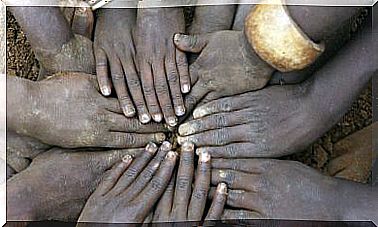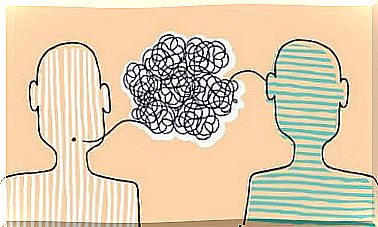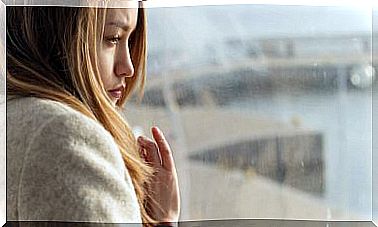Gratitude: The Secret Ingredient
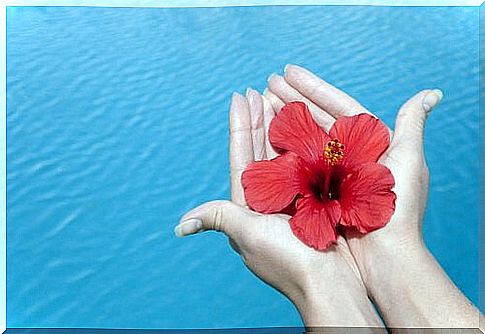
There are good and bad days; we all know that. There are times or stages when we cannot find a clear path, have too many doubts or are emotionally inactive or disappointed. In the face of all this, we can look for solutions that will provide happiness or personal balance.
To achieve this, the key is to unite a collection of elements from our inner world and our surroundings. It is not an easy road. For happiness, you have to work hard.
One way to begin or continue to move forward on the path to happiness is to practice something we sometimes forget: gratitude.
When was the last time you stopped to be grateful for things? How often have you avoided saying thank you out of fear, out of concern for what to say, or perhaps just because you did not know how?
Let us be aware of the power of the word. It is important to know how to give them the right opportunity, tone, emphasis, place and sincerity. We do not always choose these very well, and we do not always get it right, even if we had the best of intentions.
Have you ever considered thanking someone in a special way? Why did you not do that? Is it the same to say thank you and to be grateful?

“Thanks”. Four well-composed letters that can fall at either end of the emotional spectrum. On the one hand automatic formalism, on the other hand the most significant of emotions.
We send out “thanks” to the right and left. It is almost like a gift we give to strangers every day. We have been trained that formal gratitude is a social norm. “Thank you for coming”, “thank you for participating”, “thank you for the food”, “thank you for your invitation” etc. All this is more or less formal and more or less something you feel.
We normally say thank you for communicating socially. It opens doors for us, for us closer to each other and simplifies our integration into a group. However, there is another type of “thank you”. A type we practice to a lesser extent. The type that exists between parents, friends, family members or special acquaintances in our lives.
Here we are going to talk about gratitude.
In fact, what we are talking about are not formalities and automatic answers. We are not talking about saying “thank you” to people who seek recognition in their work.
We are talking about watching us around or against the past to draw attention to the person who has helped us without asking for any compensation. Often without knowing or meaning it, but he or she did.
That coach who made us look beyond the balls, the hurdles or the selections. That teacher who helped us discover our love of books, history or mathematics. That relative who gave us the best summers of our lives in a completely natural way, but who we will remember with great affection.
To be grateful is to connect with a personal feeling and share it with someone else.
Being grateful helps us to:
- Release reserved emotions and provide inner peace
- Get rid of the idea of solving ongoing cases (“I would have liked to thank him…”)
- Raise self-esteem
- Strengthen social ties
- Fight the bad times and the negative emotions
Martin Seligman is one of the most recognized psychologists today. He was the primary driving force behind positive psychology – the branch of psychology that includes the scientific study of emotions and the positive qualities of humans.
Together with Christopher Peterson, he developed a study that collects and classifies the strengths and virtues that can help us achieve a better quality of life.
They not only based their observations on current studies, but also studied ancient philosophies and texts from all cultures and religions on each continent.
They were able to produce several common elements from all this. One of the general categories called “transcendent” – forces that give meaning to life and connect us with our surroundings and universal emotions – includes gratitude.
Excessive was defined as ” being aware of and grateful for the good things that happen to one, as well as knowing how to say thank you. “
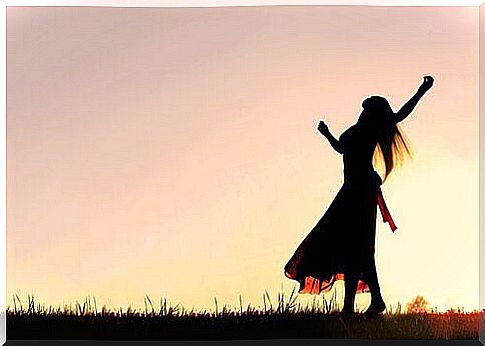
There are different types of things that prevent us from expressing gratitude. Fear of “what to say”, the feeling that it is already too late, a hint of arrogance or pride that makes us sometimes doubt, the thought that the feelings are not mutual or shy.
But the effect that gratitude has is so positive that we must not doubt ourselves if we have something in mind, but must try. Before, it helps to identify things we can really feel grateful for.
Every day or once a week, take a few minutes to identify the things you can feel grateful for. This will also help you evaluate and reflect on the actions, situations or people that add calm and positivity to your daily life.
And most of all , you should write a letter to someone from the past that you would like to thank for something. It is not necessary to give your recognition for something that was heroic. You can be grateful for routines, attention, gestures, events, insights…
Think of someone and take your time; organize what you would like to express and write. The choice is yours when it comes to delivering it to the person. Maybe by handing it over by hand or reading to the person. Our recommendation? The best experience is to read aloud and talk about it.
Beyond “thank you” there is experience and feeling. Discover the best way for you to say, receive and enjoy thank you. It is one of the surest ways to find satisfaction and once again uncover our sense of identity.
Sharing something like this quietly contributes to a connection with our positive emotions and adds another stone to the path we are constantly building towards our happiness.
